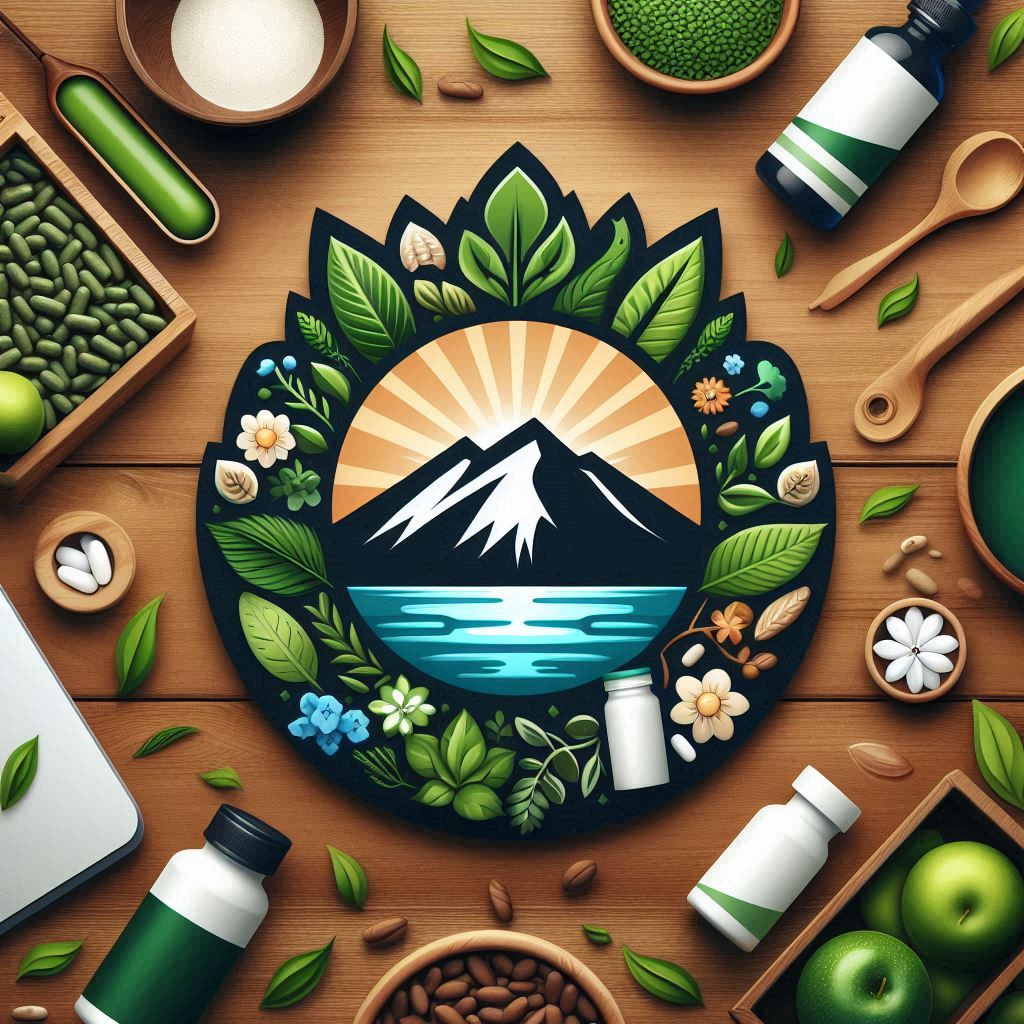If you’re someone who takes herbal supplements daily, you already know they can be a great addition to your self-care routine. But getting the most out of your bottle of ashwagandha, turmeric, or echinacea is about more than just popping a capsule each morning. How you store your herbal supplements makes a huge difference in their freshness, effectiveness, and shelf life. I’ve seen way too many perfectly good herbs go to waste just because they sat in a steamy bathroom cabinet. That’s why I put together this all-in-one and easy-to-follow guide covering the best practices for keeping your herbal supplements at their best.
Whether your supplement stash is big or small, these tips will help you hang onto the purity, flavor, and potency you paid for. If you care about your wellness (and your wallet), check out my handy storage roadmap and avoid the common mistakes that reduce the power of your herbs.
Product: Herbal Supplements (capsules, powders, tinctures, dried herbs)
Main Focus: Storage and Longevity
Who This Helps: Anyone using herbal remedies for personal wellness
Quick Takeaway: Smart storage makes a noticeable difference, so don’t overlook it!
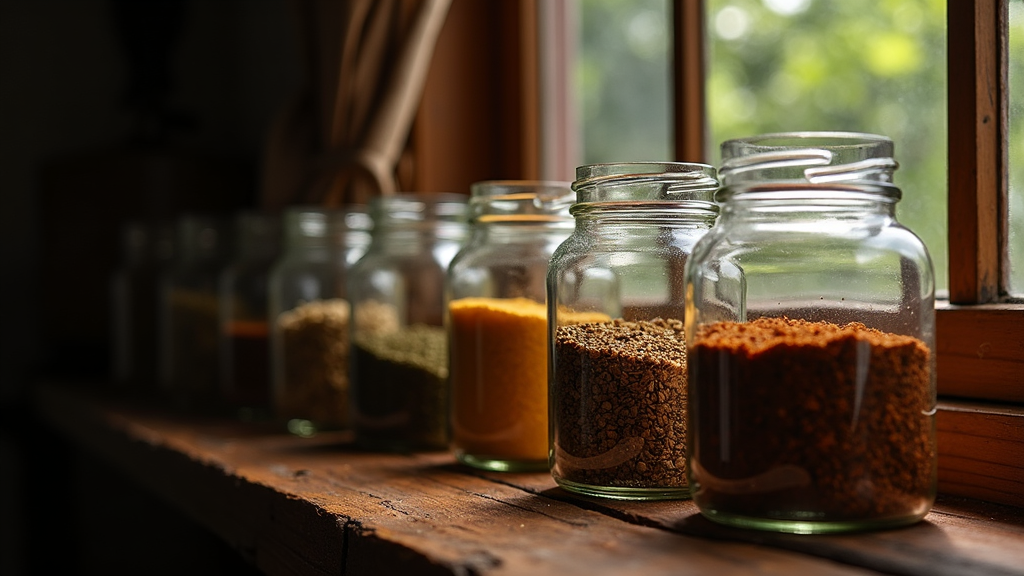
Quick-Reference Storage Details for Herbal Supplements
Herbal supplements come in all shapes and sizes, from capsules to powders and liquid extracts. Here’s a cheat sheet with the basics you’ll want to remember, so you never wonder where to keep that new bottle of ginseng or that bag of loose leaf nettle.
- Ideal Storage Temperature: 60–77°F (15–25°C)
- Humidity: Less than 60% is best. Too much moisture is a recipe for mold and loss of potency.
- Light Exposure: Keep out of direct sunlight. UV rays can break down delicate herbal compounds.
- Container Material: Glass (especially dark glass) or high quality plastic with tight seals.
- Do Not Store In: Bathrooms, steamy kitchens, cars, or anywhere temperature or humidity swings a lot.
Getting this foundation right keeps your herbs fresher longer, and a lot more effective when you actually use them.
The Biggest Threats to Herbal Supplement Shelf Life
Most supplements aren’t actually that fragile if you keep four main enemies at bay. Here’s a breakdown of what to avoid so you don’t waste money or risk unwanted side effects.
- Heat: Hot environments quickly break down many plant compounds. If you store supplements near the stove, heater, or in a sunny window, expect those capsules to fade fast.
- Humidity: Moisture can cause herbs to clump, lose flavor and scent, and even grow mold. Powders and dried leaves are the most vulnerable here.
- Oxygen: Air exposure leads to oxidation, which reduces both flavor and potency, making your supplements less effective.
- Sunlight: UV rays have a big effect on herbs. Some, like turmeric and chlorophyll rich greens, lose their punch fast in the sun.
The good news is that you can sidestep all of this just by being careful with storage. No fancy gadgets required.
Why Proper Storage Practices Matter
Some folks roll their eyes when they hear that “how” supplements are stored can affect results, but it really does. I once left a bag of dried chamomile in a humid laundry room. After a few weeks, it smelled musty and the tea was weak and tasteless. Wasted money and wasted herbs.
The wrong storage can mean:
- Shortened shelf life (sometimes by months)
- Reduced potency and results
- Odd smells or tastes
- Risk of mold, which can be dangerous
- Sticky or clumped capsules and powders
On the flip side, when you store your herbal supplements well, you keep them fresh and effective until you’re ready to use every last dose. Getting into these habits means fewer surprise trips to the health store and real peace of mind about what you’re putting in your body.
Best Places to Store Herbal Supplements for Longevity
Where you put your herbs really matters. You’d be surprised how many people keep their supplements in the bathroom just because it’s convenient. Steamy showers do supplements no favors. Here are the best storage locations:
- Bedroom Closet or Dresser: Usually cool, dry, and dark, making these spaces ideal for most types of herbal products.
- Pantry or Kitchen Cupboard (Away from Oven/Stove): This works as long as the spot doesn’t get steamy when you cook.
- Dedicated Supplement Box: If you want to go the extra mile, a wooden, metal, or insulated box can provide an extra layer of protection against light and heat.
- Refrigerator: Great for certain products (see section on refrigeration below), but only if the label suggests it or if it’s a liquid or probiotic supplement.
Here’s a quick spot check: if the place feels cool, dry, and doesn’t see much sun, it will probably work for storing your herbal supplements.
Best Practices for Storing All Types of Herbal Supplements
Each form of herb—capsule, powder, tincture, dried leaf—has a preferred way to be stored. The more you know what you’re working with, the better you’ll protect your supplements and your investment.
Capsules and Tablets
- Keep in the original bottle if possible, especially if it’s UV resistant.
- Always close the lid tightly after each use. Capsules soak up moisture easily and get sticky or clumpy fast.
- If transferring to a pill organizer, use one with tight fitting lids and keep it in a dark spot.
Dried Herbs (Loose Leaf, Bulk Powders)
- Store in airtight glass jars or metal tins; avoid plastic if possible for long term storage.
- Add a food safe desiccant packet (like those in vitamin bottles) to cut down on humidity.
- Use a clean scoop—don’t reach in with wet or dirty hands.
Powdered Herbs and Blends
- Super sensitive to humidity, so always use a silica gel packet.
- Keep away from any heat source. If the powder clumps easily, you’re storing it in too much moisture.
Liquid Extracts and Tinctures
- Glass bottles, preferably amber or cobalt, help block light.
- Keep the dropper clean and make sure the cap is sealed between uses.
- Avoid storing in direct sunlight, even for just a few hours.
Tea Bags and Sachets
- Best stored in their original box or in a sealed glass jar or tin.
- Avoid keeping tea next to strong spices or scented products. Herbs soak up odors fast.
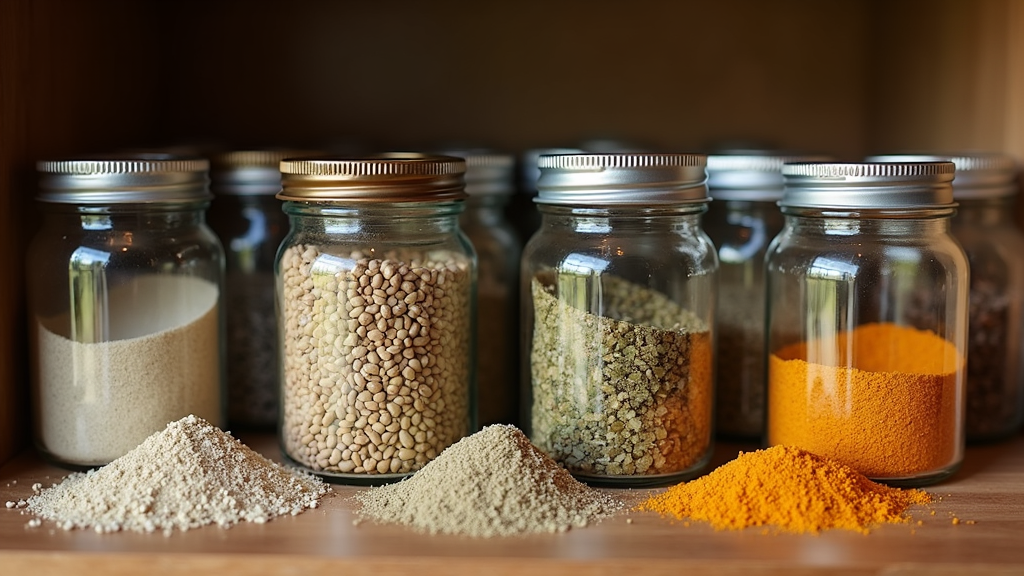
Choosing the Right Storage Containers
Not all containers are created equal when it comes to herbal supplement storage. I’ve gone through my fair share of bags, tins, bottles, and fancy canisters, and here’s what actually helps:
| Container Type | Pros | Cons/Inappropriate Uses |
|---|---|---|
| Amber/Dark Glass Jars | Best for blocking light and keeping air out; reusable | Glass can break; clear glass isn’t ideal for light sensitive herbs |
| Plastic Bottles | Lightweight, great for travel | Can leach chemicals if overheated; only use food grade types |
| Metal Tins | Keeps light out, good for teas and dried herbs | Potential for rust if not high quality; not for liquids |
| Plastic Zip Bags | OK for short term use | Not airtight for long term; lets light in; herbs lose flavor quickly |
No matter which you pick, the seal needs to be tight. Airtight is the game changer for keeping humidity and oxygen out. I always keep a few extra small dark glass jars on hand for when I buy herbs in bulk.
Should You Refrigerate Herbal Supplements?
This one comes up all the time. Some supplement labels say “Refrigerate after opening,” while others say nothing at all. Here’s how I figure it out:
- Powders/Capsules/Tablets: Store at room temperature, unless the label suggests otherwise. Refrigeration creates condensation, which ruins most dried herbs and powders.
- Probiotics/Fresh Juices: Almost always require refrigeration, and pretty quickly after opening.
- Liquid Extracts: Some brands recommend refrigeration for extra shelf life (especially alcohol free tinctures, aloe juice, or herbal syrups), but check the specific label. If in doubt, ask the company directly.
Refrigerating herbal supplements that aren’t meant for it usually causes more harm than good. For most, your best bet is a cool, dark, dry cabinet.
How to Handle Light Exposure
Light is one of those sneaky things that can break down the compounds in herbs without you noticing until it’s too late. Here’s how I keep my stash protected:
- Use amber, cobalt, or opaque containers whenever possible.
- Keep containers inside drawers, cupboards, or boxes, not on window sills or kitchen counters facing sunlight.
- If transparency matters (like for bulk herbs in a big jar), store the jar in a dark box or behind a closed cabinet door.
This is a simple step, but it has a real impact, especially with light sensitive herbs like St. John’s Wort, green teas, and herbal blends containing delicate oils.
Managing Moisture: Why and How
Even a tiny bit of moisture will spell trouble for dried herbs and powder blends. I can’t tell you how many times I’ve opened a jar only to find clumps or fuzzy spots inside. Here’s my go to advice for fighting against humidity:
- Always close lids tightly after use, and never leave bottles open for any reason.
- Include a food safe moisture absorber like a silica gel packet. You can find extra ones online or reuse packets from store bought supplements.
- Don’t store any supplement bottles near the dishwasher, stove, or fridge exhaust.
- Avoid handling loose herbs with wet or sweaty hands. Use a scoop for best results.
If you notice your supplements sticking together or the powder turns hard, check your storage location and consider moving the whole container somewhere drier.
Rotating Your Herbal Stock Like a Pro
It’s super easy to forget what you bought last year, especially if you picked up a bunch of different herbal blends on a wellness kick. Here’s how I manage my own collection so nothing goes to waste:
- Always label containers with the name, date of purchase, and, if possible, the lot number.
- Follow a “first in, first out” rule, using the oldest herbs before opening new ones.
- Keep an inventory list if you are a real supplement enthusiast. I track mine in a notebook.
Homegrown or DIY dried herbs should be handled the same way. Trust me, your future self will thank you when you aren’t left guessing about the age (or identity) of a random green powder in your cabinet.
Understanding Expiry and “Best By” Dates
Herbal supplements aren’t like milk. They don’t spoil overnight, but they don’t last forever either. After a certain point, they fade, lose their taste, or just aren’t nearly as effective. Here’s what you need to know:
- Capsules/Tablets: Generally last 1–2 years, but this depends on the form and how you store them.
- Dried Herbs: Typically keep their kick for 6–18 months before flavor and potency drop off.
- Tinctures: Alcohol based ones stick around for 2–5 years if sealed well. Glycerin or water based extracts drop off sooner.
- Powders: About 1 year if kept totally dry and sealed. Moisture can cut this to just a few months.
- Tea Bags: You’ll notice the flavor start to go after about a year.
- Essential Oils: Usually good for 1–3 years, depending on the oil and bottle quality.
Once herbs change color, smell musty, or taste “off,” it’s definitely time to replace them. Don’t take a risk on supplements that smell moldy or have clumped into hard balls.
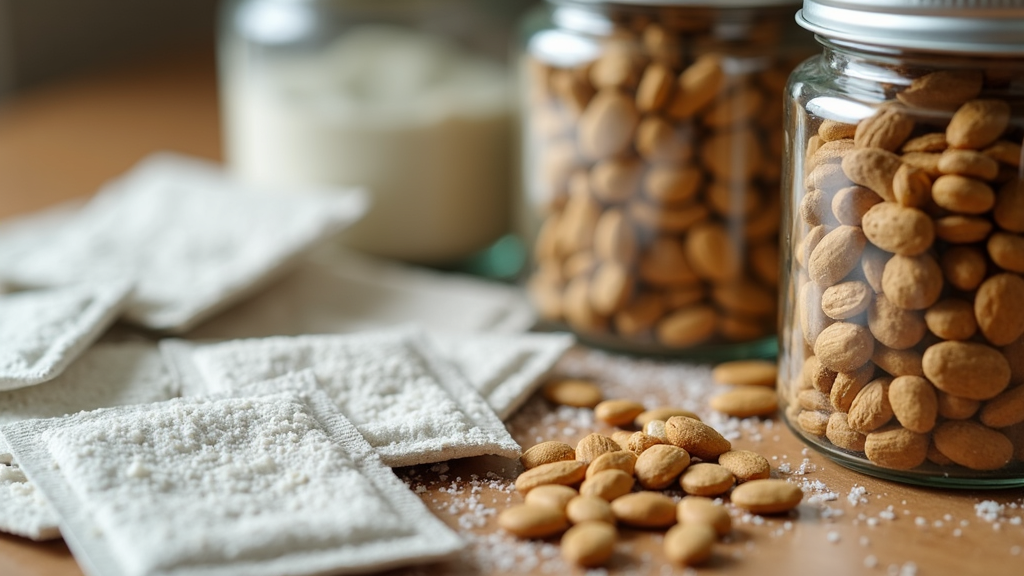
Spotting the Signs Your Herbal Supplements Have Gone Bad
No one wants to choke down a questionable capsule or add stale powder to a tea. Trust your senses—if something looks or smells unusual, skip it. Here’s what I check for:
- Change in color: Faded, yellowed, or darkened herbs are a sign of age or bad storage.
- Texture changes: Sticky powders, clumped capsules, or tough, brittle leaves.
- Unpleasant odors: Anything sour, musty, or moldy is a red flag.
- Mold spots: Toss immediately if you see any fuzzy patches or strange growths.
- Changes in taste: Weak, bitter, or “flat” flavors signal the actives have broken down.
There’s really no reason to chance it. Outdated supplements won’t help you and can actually do more harm than good.
Safe Herbal Supplement Handling Habits
Storage is only half the battle; handling your herbs a little more carefully keeps things cleaner and longer lasting. Here are some habits I swear by:
- Never touch loose herbs or powders with wet or dirty fingers.
- Use a clean, dry scoop or spoon every single time.
- Double check that the lid or seal is secure after each use.
- Keep supplements out of sight and reach of children and pets.
- Wipe down containers if you spill anything before putting them away again.
These take just a second and are worth it for both your safety and the quality of your herbs.
Traveling with Supplements: Doing It Right
Whether I’m jetting off for a week or just spending a few nights away, I always want my immune support without sacrificing freshness. Here’s what works for travel:
- Pack only what you need in an airtight, travelsized pill case or small jar.
- Make sure containers don’t accidentally pop open in your bag; use a piece of tape if the lid is loose.
- Keep travel pouches away from sunlight (don’t toss them on the car dashboard).
- If road tripping, keep your supplements in a soft cooler bag (with no ice) to limit heat exposure.
Traveling doesn’t have to mean using up all your freshest herbs in a rush, as long as you pack smart and stick to the airtight, dark, dry mantra.
Special Situations: Unique Storage Needs for Certain Herbs
Some herbs and blends play by their own rules. Here’s what I’ve learned about dealing with a few of the trickier ones:
Probiotics and Enzyme Blends
Probiotics are almost always best off in the fridge, both before and after opening. Even “shelf stable” kinds last longer and work better if kept cool. The same is true for enzyme blends in capsule or powder form. Unless the label says otherwise, cooler is better.
Superfood Powders (Spirulina, Wheatgrass, Greens Blends)
These are sensitive to both light and heat. Dark glass jars work every time, and you want to be especially careful with moisture because clumping ruins greens powder fast.
Essential Oils
Oils are best stored in their original, tightly closed, amber glass bottles. Refrigeration is usually unnecessary and sometimes even causes separation or cloudiness. Keep them in a cool, dark box away from sunlight for best results.
Fresh Roots or DIY Herbal Blends
If you make tinctures at home or buy freshly harvested roots, always check specific storage instructions. Fresh roots go in the fridge (a paper bag inside a sealed container prevents shriveling). Homemade tinctures in strong alcohol store well in dark, cool spots for years.
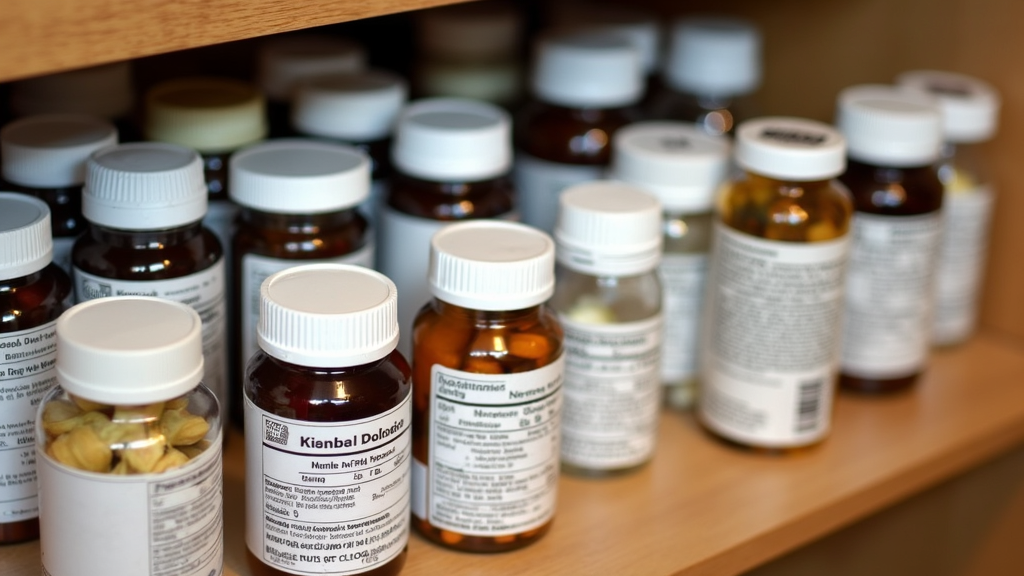
Shelf Life Estimates For Common Herbs and Forms
| Form | Average Shelf Life (When Stored Properly) |
|---|---|
| Capsules/Tablets | 1–2 years |
| Dried Herbs/Leaves | 6–18 months |
| Alcohol Tinctures | 2–5 years |
| Powders | About 1 year |
| Tea Bags/Sachets | About 1 year |
| Essential Oils | 1–3 years |
Always check the specific expiration or “best by” date. Every brand and blend is different and storage makes a bigger difference than you might expect.
Safety Guidelines for Herbal Supplement Storage
Don’t forget about safety basics, especially if you have family or pets at home. These practices keep everyone out of trouble:
- Store supplements well out of reach of kids and animals at all times.
- Avoid repurposing old medicine bottles for herbs without cleaning them thoroughly and relabeling.
- If you suspect a supplement has gotten damp or contaminated, throw it out. It’s not worth the risk.
- Never mix different herbs in the same container unless you’ve made a blend yourself and know exactly what’s inside.
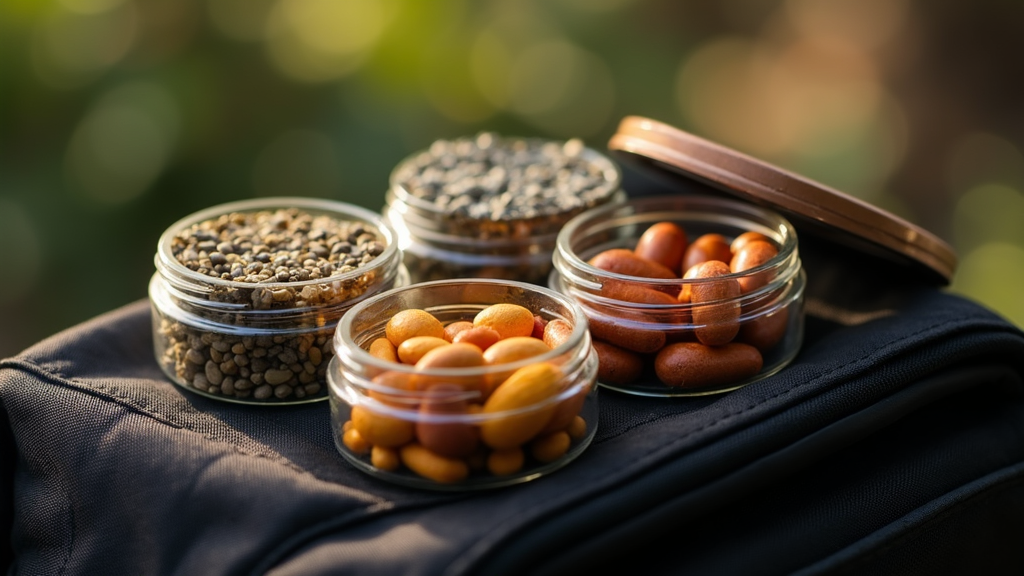
How Good Storage Habits Save Time and Money
I’ve noticed that having a simple system makes life easier and cuts down on wasted cash. When your supplements last longer, you do way fewer emergency runs to the health store and avoid tossing out bottles full of clumpy powder or dried out pills.
- Organizing by expiration date lets you use up what you have before opening or buying more.
- Monitoring your stash means you never end up with three half empty bottles of the same thing.
- Safe, organized storage makes morning routines smoother and stress free. No searching for lost jars or clumped capsules.
It might sound basic, but these habits really set you up for success if you take herbal supplements regularly.
Building a Simple Herbal Supplement Storage Routine
Here’s my own storage checklist that makes keeping herbs fresh almost automatic:
- Pick a dedicated, cool, and dry cabinet or closet for all herbal supplements.
- Use airtight amber or dark glass jars whenever an herb is sensitive or bought in bulk.
- Add desiccant packets to any jar, tin, or storage box with loose herbs or powders.
- Write the name and date on every container and keep records simple.
- Keep a basic tracking or rotation list. Even just a piece of paper on the inside of the cabinet door does the trick.
- Set a reminder once every three months to check expiration dates and throw out anything expired or questionable.
This takes less than 15 minutes to set up, but it keeps my routine smooth and stress free all year round. Once you have your system in place, you’ll never want to go back.
Bottom Line: Your Health, Your Herbs, Your Storage
Storing herbal supplements doesn’t have to be complicated or expensive, but it does make a big difference in their effectiveness and safety. If you’re spending money on high quality herbs, the last thing you want is to lose their potency or, worse, get sick from a moldy capsule. By paying attention to temperature, humidity, light, and container quality, you keep your supplements working for you, not against you.
All these tips come from years of trial, error, and a little bit of frustration (from tossing out wasted herbs). They’ve saved me a heap of wasted product and helped me get genuine results from my blends. If you’re looking for more, there’s a wide range of resources on wellness sites like the National Center for Complementary and Integrative Health (see their Herbs at a Glance guide here) or supplement brands’ education pages.
Get your system set up and storing herbal supplements becomes easy. You’ll have more energy, better taste, and zero guilt about expired capsules hiding in the back of a drawer. Got your own storage hacks that work? I always love hearing from other herbal enthusiasts. Share your tricks and questions anytime. Happy herbal storing!
